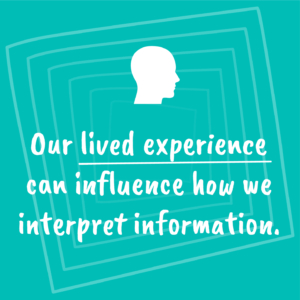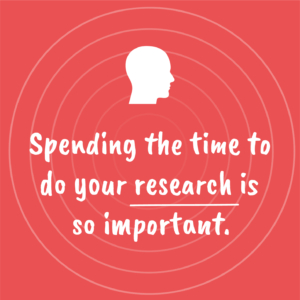“Fancy grabbing dinner?”
A simple question that all English-speaking people would understand to mean an evening meal probably between 6-8pm. I don’t need to spell it out, it’s obvious. Isn’t it?
Well…I suppose people who grew up in other countries might eat earlier or later so maybe I should say English-speaking people who grew up in England.
But hold on, I hear you cry, don’t people in the north of England have dinner at lunchtime? Hmmm maybe I should be more specific and say English-speaking people who grew up in the south of England.
Suddenly it doesn’t seem so simple. Yet so often when we communicate, we assume mutual understanding as very often we do have shared context so meaning can sometimes be inferred rather than be explicit.
However, inside organisations we have a diverse mix of people with different backgrounds.
How often do we consider if the intention of our message is what will be received and understood?
The impact of lived experience
Let’s take the above example further. When some people (for the purpose of this example, let’s say English-speaking people who grew up in the south of England) hear the word dinner, they might conjure up a picture of a fancy restaurant with candles on the table, someone else might picture their local pub and others might think about sitting around the dining table or even in front of the TV.
Our lived experience can influence how we interpret information.
This example is unlikely to cause major issues. But now imagine you’re communicating a merger. You’ve spent ages preparing communications that explain why this is positive for the business and its employees.
However, the word merger conjures up images and memories of the last one which wasn’t successful…
All your hard work is immediately undone as people apply their own experiences and biases to a certain word or sentence. It’s a difficult situation, but all is not lost.
 Know your audience
Know your audience
Will different audiences react in different ways? Do you have long servers with long memories or is there a high turnover of staff?
Information like this can help you understand how people might react and how much of the past they will remember.
Spend time getting to know your employees and what matters to them. Creating audience personas can really help you put yourself in the shoes of employees. What about a merger makes them anxious and how can you address that up front?
Understand your business and its history
How much change has there been in the past? How did it land? What else was going on at that time in the wider world that might have impacted how they reacted – are they likely to react the same way now? Are employees change-fatigued or are they ready for something to change?
This is especially important if you’re relatively new to the business – while it’s good to look ahead, it’s often worth taking time to look back now and again to consider how the past may impact the present.
Consider external influences – what else might be affecting how employees interpret communications?
What is the external environment like? How are people feeling generally?
A communication around ethics might be well-intentioned but if the business hasn’t communicated about the crisis in Ukraine, it might not land well.
A CEO talking about their holiday abroad to come across personable when some people are struggling to pay their bills will be considered tone deaf.
 Applying your research
Applying your research
Spending the time to do your research is so important. Once you’re armed with that you can:
- change the tone and style of your content to reflect your audience and enable better understanding
- identify when misunderstandings could take place
- help leaders communicate better – understand how what they say is received by employees.
Credibility and Trust
This level of insight and understanding will help employees and stakeholders trust your expertise and have confidence in your advice. You’ll no longer just be drafting content but advising on the approach and having real business impact (and make sure you measure that impact!).
Suddenly, creating content might not seem so tactical anymore…
By Helen Deverell for Alive!
















